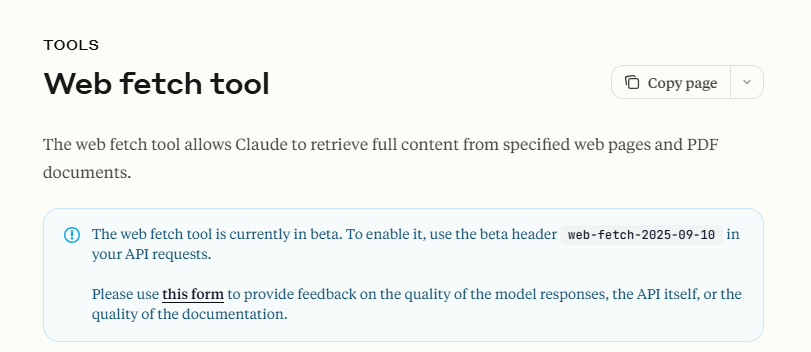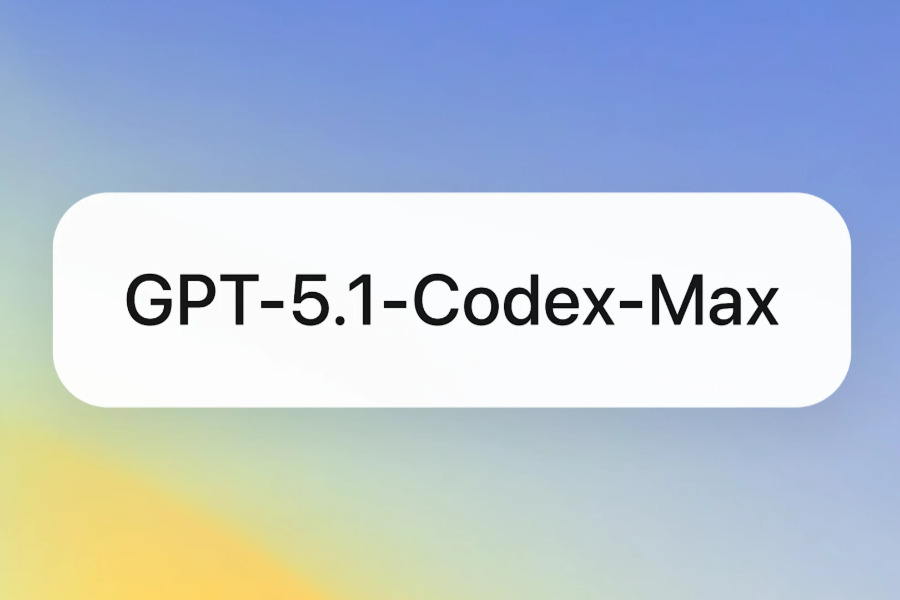The AI world is a fiercely competitive arena, and Claude is arming itself in an unprecedented way, transforming into a true “all-in-one intelligence agent.” This powerful evolution is thanks to Anthropic’s latest game-changing feature: Claude Web Fetch.
This new capability fundamentally redefines how AI gathers information. It moves Claude beyond simple web searches, enabling it to access specific webpages and PDF documents like a seasoned researcher. It can extract, analyze, and summarize information, and even generate comprehensive reports directly from the source material.
By integrating with its existing Web Search tool, Claude has built a seamless, end-to-end workflow from discovery to deep analysis.
What Is Claude Web Fetch?
Imagine eliminating the need to write complex web scraping code just to process massive amounts of online information. Claude’s Web Fetch feature was created for exactly this purpose.

This public beta feature, powered by an API, works when you provide a simple URL. Claude automatically retrieves the entire content of the specified webpage or PDF file and processes it according to your instructions. It can distill key information, create concise summaries, or even produce professional reports with full citations.
The core of this feature lies in its ability to go beyond simple summary and perform sophisticated, context-aware analysis on the retrieved content. Developers can activate this capability by simply adding the anthropic-beta: web-fetch-2025-09-10 header to their API requests.
Read More: Anthropic Launches Claude for Chrome
How Does Claude Web Fetch Work?
The operational mechanics of Web Fetch combine intelligent retrieval with transparent sourcing.

Intelligent Content Extraction
The system automatically extracts and structures full text from webpages and PDFs, making information readily available for analysis. Unlike traditional scrapers that might miss dynamic content, Web Fetch is designed to handle a wide range of web structures and document formats.
The tool converts HTML into clean markdown for easier processing and can even maintain citation integrity throughout this transformation process.
Autonomous Decision-Making
Claude intelligently determines if and when it needs to use the Web Fetch tool based on the context of your conversation. For example, if you ask a question that requires detailed information from a specific report, it will autonomously activate Web Fetch to get the necessary data.
This decision-making capability enables a more natural and efficient research workflow, where the AI assists in determining the best path to gather required information.
Transparent and Trustworthy
A major breakthrough of this feature is its commitment to transparency. All analysis results are accompanied by clear source citations, which effectively combats the common AI hallucination problem. Users can verify the information and trust that the output is grounded in verifiable sources.
This transparency extends to the API level, where developers can choose to enable citation features to ensure proper attribution throughout their applications.
Efficient Processing
The feature supports both streaming and batch fetching, significantly boosting processing efficiency. A smart caching mechanism prevents redundant work, saving time and computational resources.
This is particularly useful for users who need to process large volumes of data or revisit the same sources. Developers can also control costs by setting the max_content_tokens parameter to limit the amount of content retrieved in each request.
Web Search Meets Web Fetch: A Powerful Combination
The true power of Web Fetch emerges through its synergy with Web Search. Think of Web Search as the “advance scout” that helps Claude find the most relevant links across the internet. Web Fetch then acts as the “intelligence analyst,” meticulously examining content within those links.
This combination creates a comprehensive research workflow that mirrors how human experts gather and process information:
- Discovery: Web Search identifies potentially relevant sources from the vast internet landscape.
- Retrieval: Web Fetch obtains the complete content from targeted URLs.
- Analysis: Claude processes and cross-references information from multiple sources.
- Synthesis: The AI generates coherent, well-supported outputs with proper citations.
For instance, if you want to understand the latest research developments in a particular field, you simply tell Claude your query, and it will execute this entire process automatically, delivering a polished summary with complete references.
This integrated workflow provides researchers, business analysts, and content creators with an unprecedentedly powerful tool. It automates the most time-consuming aspects of research, allowing users to focus on higher-level insights and creative work.
Safety First: Ensuring Data Security
Despite its powerful capabilities, Anthropic has maintained a high level of vigilance regarding safety. The company has implemented multiple layers of protection to prevent potential misuse of the Web Fetch functionality.
Restricted URL Access
Web Fetch currently only supports fetching content from URLs explicitly provided by the user. It cannot fetch arbitrary URLs that Claude generates or URLs from container-based server tools, significantly reducing the risk of data exposure from the source.
This approach prevents potential prompt injection attacks where malicious actors might attempt to trick the AI into accessing unauthorized resources.
Domain Control Mechanisms
Developers can use the allowed_domains and blocked_domains parameters to set up whitelists and blacklists at the domain level. This provides granular control over which sources the AI can access, particularly important for enterprise applications with strict security requirements.
The max_uses parameter allows for limiting the number of fetch requests, ensuring strict control over data access and preventing excessive API calls.
Security Recommendations
Anthropic explicitly recommends caution when using Web Fetch in environments where Claude processes untrusted input alongside sensitive data, as this poses potential data exfiltration risks.
The company suggests only using this tool in trusted environments or when handling non-sensitive data, and implementing additional domain restrictions for enhanced security.
What Is Claude Web Fetch Used For?
The applications of Web Fetch span across multiple industries and use cases, revolutionizing how professionals work with online information.
1. Academic Research
Scholars can effortlessly extract content from PDF papers and quickly generate literature reviews. This eliminates the tedious and error-prone process of manual copy-pasting and reading through endless pages, accelerating the research process while maintaining proper citation practices.
2. Business Intelligence
Analysts can instantly retrieve current industry reports and competitor websites to rapidly form market insights and strategic analyses. This keeps businesses ahead of the curve in fast-paced markets where timely information can provide critical competitive advantages.
3. Content Creation
Writers and marketers can instantly extract key points from webpages, accelerating article writing, content rewriting, and material organization. It streamlines the creative process from initial research to final draft while ensuring content originality through proper sourcing.
4. Education and Training
Educators and students can automatically analyze online course materials to generate study notes and personalized summaries. This turns passive learning experiences into active, tailored educational journeys that adapt to individual needs.
5. Legal and Compliance
Legal professionals can stay current with the latest court rulings, regulatory updates, and industry news by having Claude automatically monitor and summarize relevant legal documents.
Conclusion on Claude Web Fetch
The introduction of Web Fetch represents a significant milestone in AI capabilities, enhancing Claude’s utility while signaling a major shift in the evolution of AI models. It marks a move from simple language comprehension to a more dynamic, trustworthy, and productive paradigm.
This new feature empowers users to interact with information in a way that was previously only possible with a combination of disparate tools and significant manual effort. By bridging the gap between information discovery and deep analysis, Claude with Web Fetch becomes not just a conversational AI but a true research partner.



